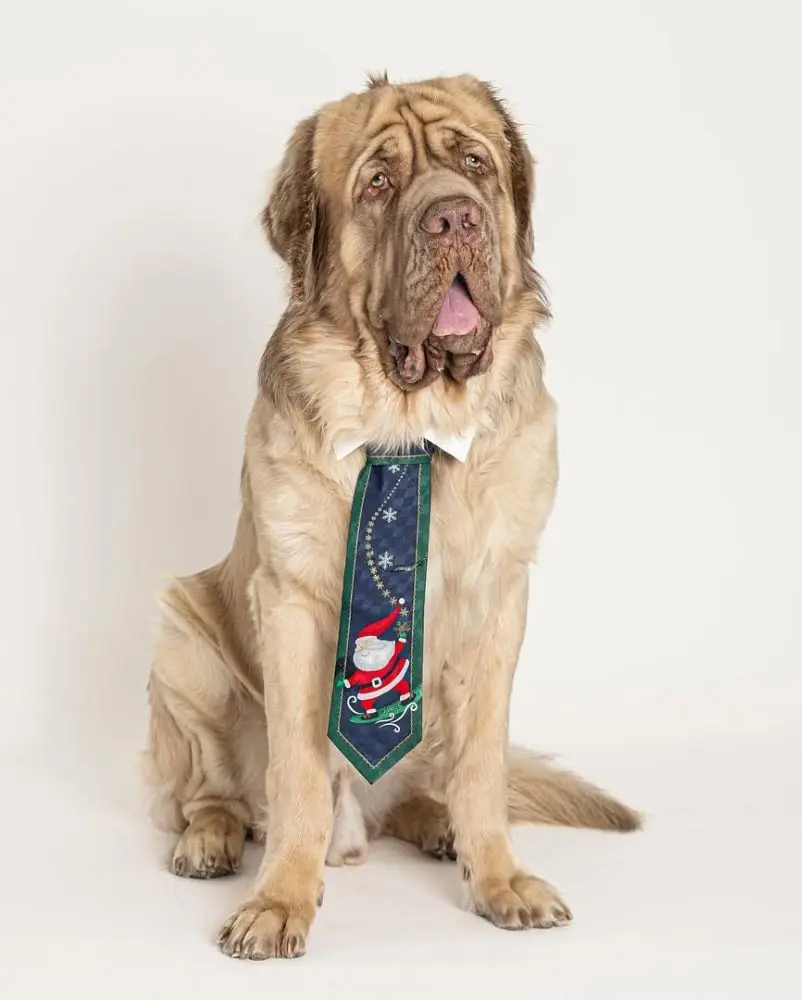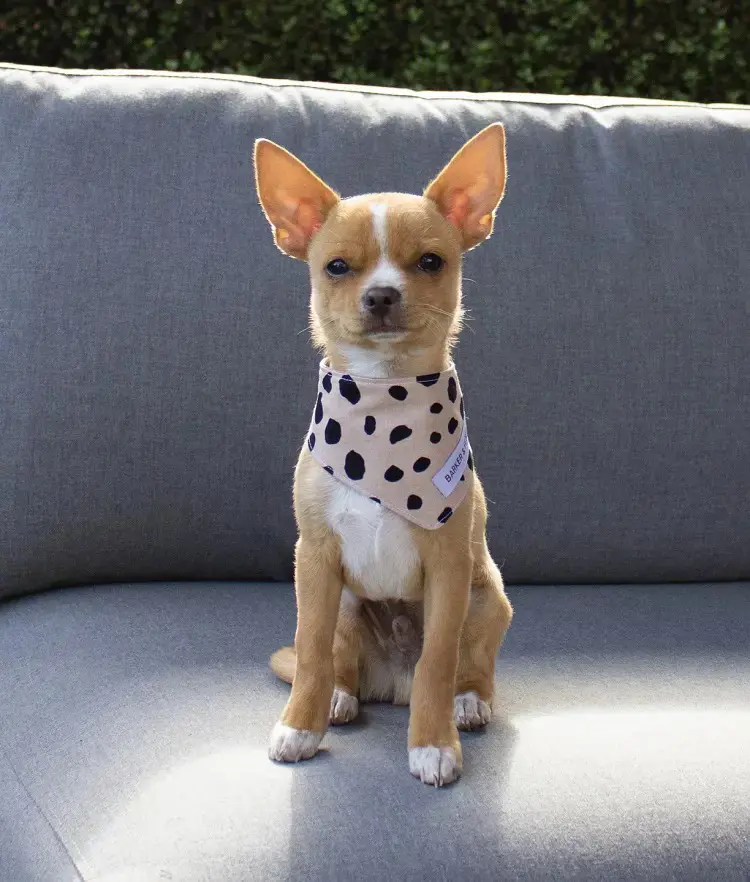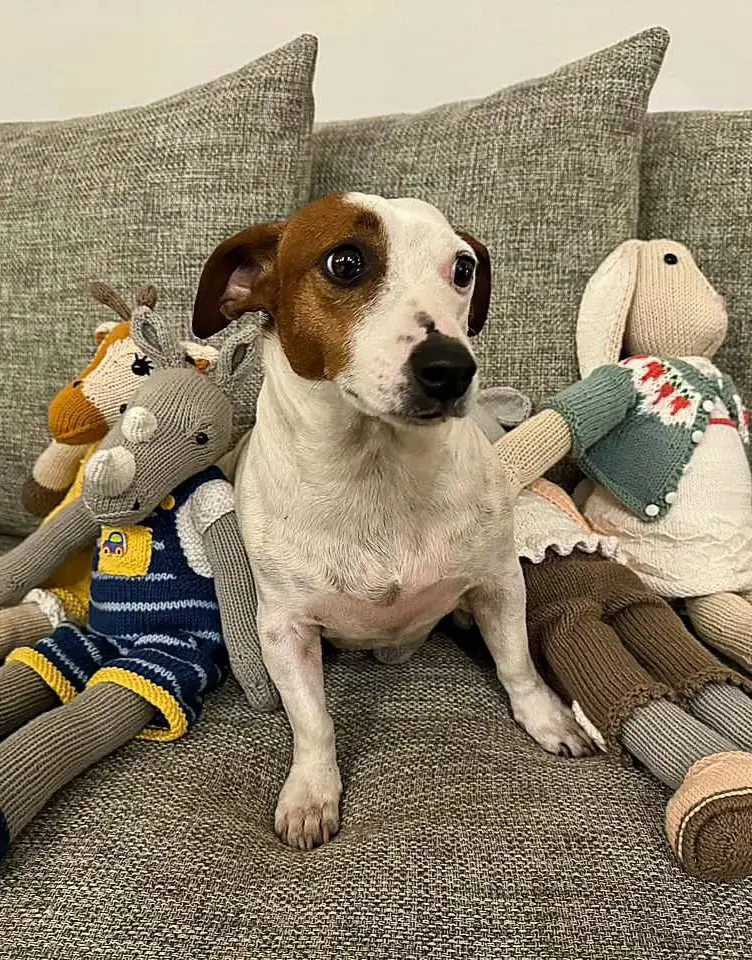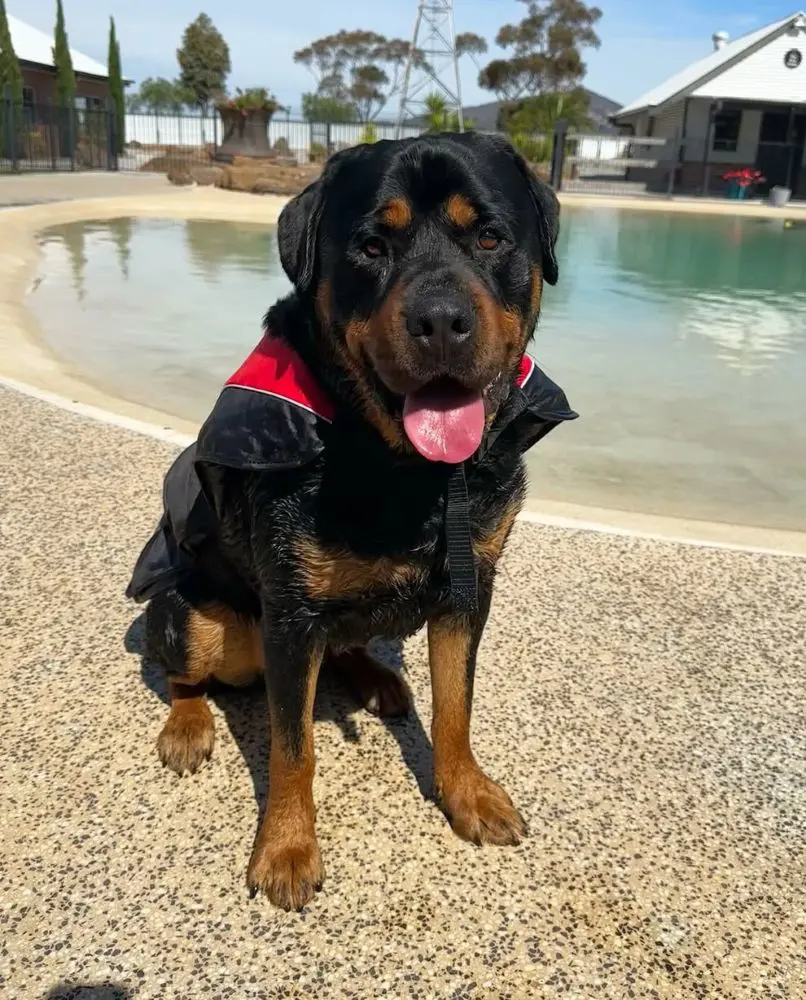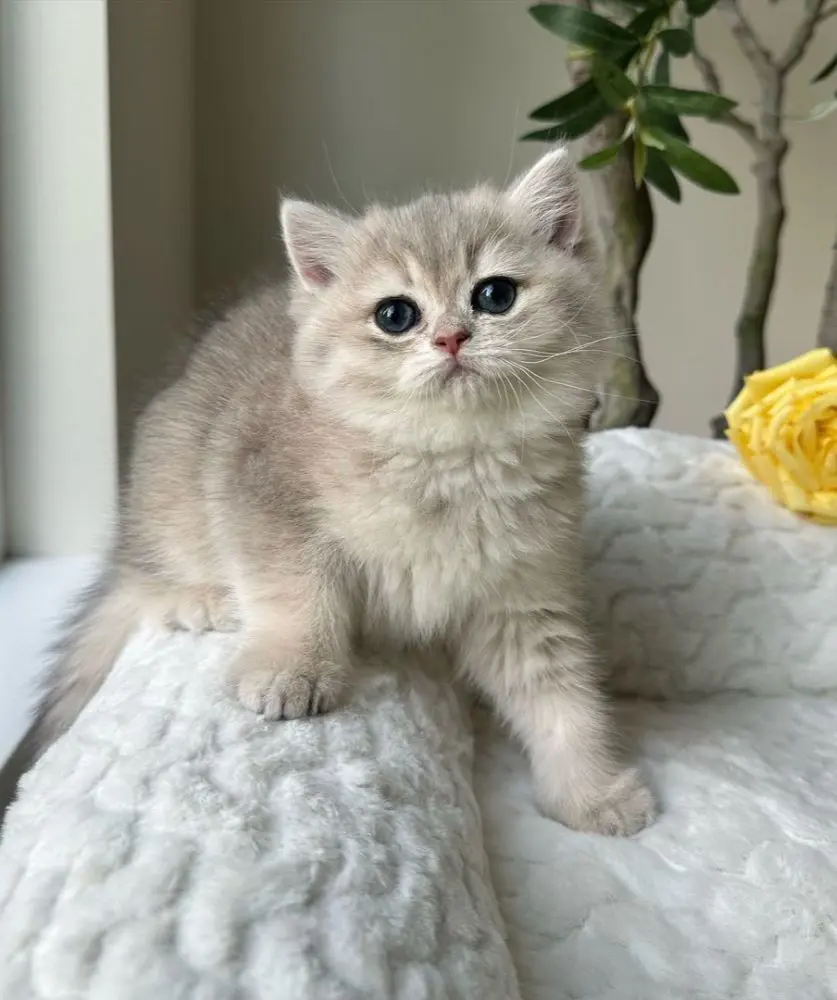Why Do Dogs Roll in Poop And Other Stinky Things
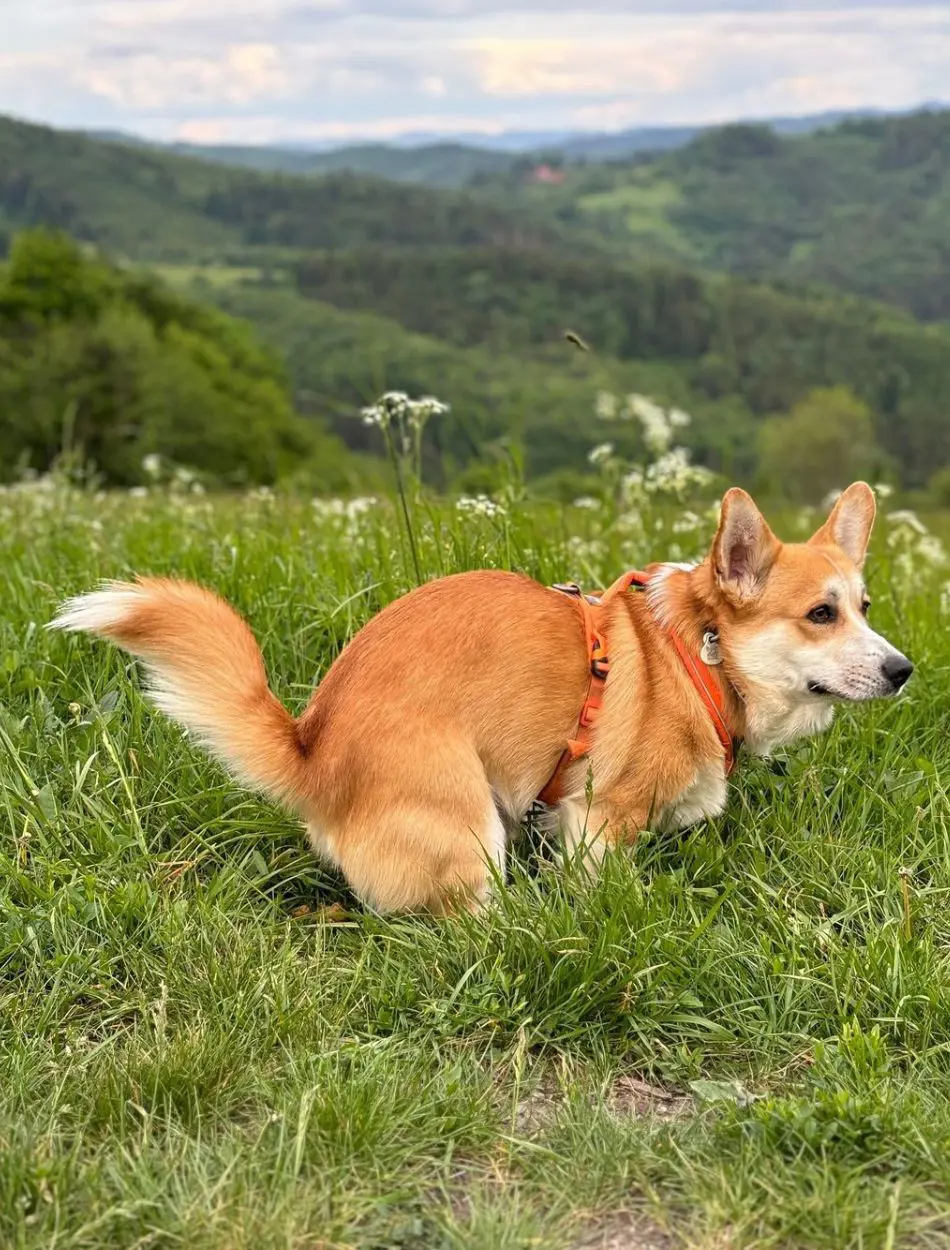
Dogs rolling in poop is a perplexing and frustrating behavior for many pet owners, often leaving them wondering about the reasons behind it. This instinctual act is thought to be rooted in their ancestral hunting and communication practices, serving purposes like masking their scent or marking territory.
They typically engage in this habit at the most inconvenient moments for their owners such as right before company arrives, right after a wash, or shortly before you leave the house. This article will help you better understand your furry friend's behavior towards smell and reasons why they enjoy doing such activities that can be repulsive to us humans.
Telling About Places They Have Been
[image-1]
Think of this as bringing postcards home from your vacation. When a dog returns to their pack, they bring back the smells of the places where they’ve spent time. This allows the other members of the pack to follow the trail back to the source and to any food that was found nearby.
So in a way, rolling in feces is a form of exchanging information amongst a pack. This is the dog's version of a social media post.
Ancestral Instincts
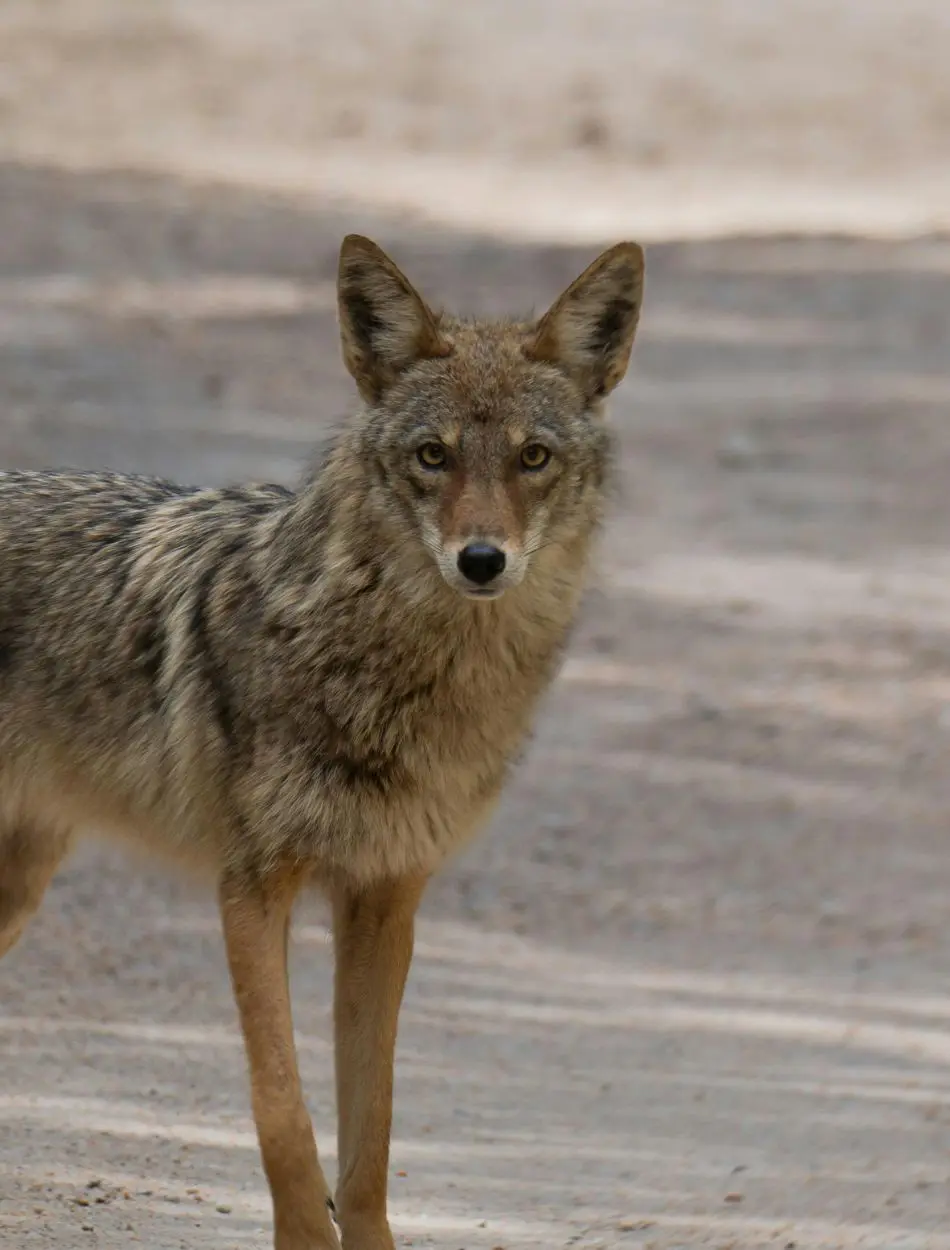
Dogs' tendency to roll in poop and other strong scents can be traced back to their wild ancestors like wolves, who used this behavior for survival. In the wild, rolling in pungent odors helped wolves camouflage themselves and mask their scents during hunts, making it harder for prey and predators to detect them.
This instinct has carried over to domestic dogs as a remnant of their ancestral past, providing mental stimulation and satisfying instinctive needs. Understanding this connection sheds light on the complex nature of canine behavior and the deep-rooted instincts that drive them.
Scent Masking
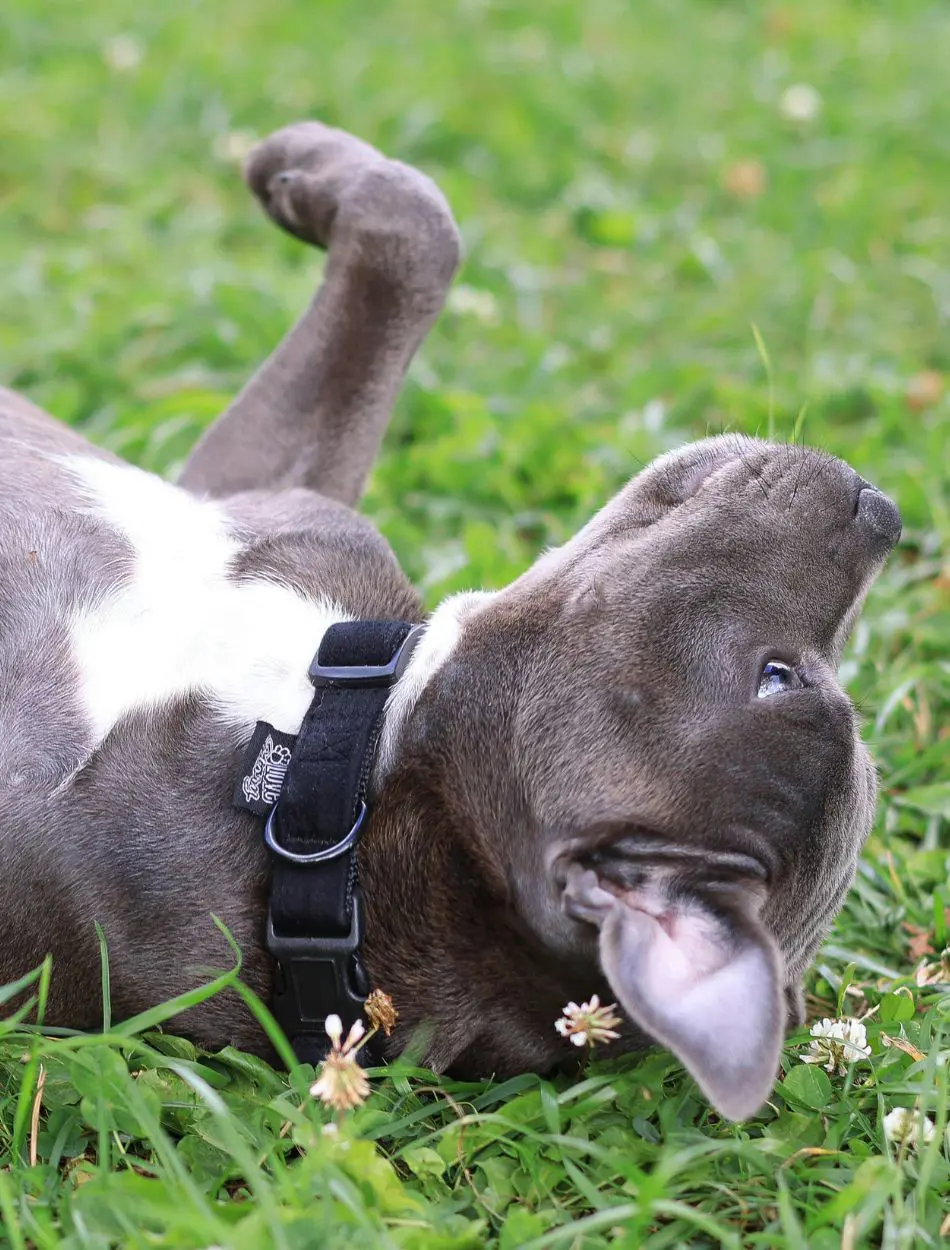
Scent masking is a behavior seen in dogs where they roll in strong, overpowering scents like feces or decomposing matter. This instinct can be traced back to their wild ancestors, such as wolves, who used it to mask their natural odor for hunting. While domestic dogs no longer need to hunt, this behavior is still present as a form of camouflage.
This may also play a role in social interactions among dogs, allowing them to present a less identifiable scent profile. By understanding this behavior, we can appreciate the nature of our canine companions, originating from their evolutionary history.
Boredom
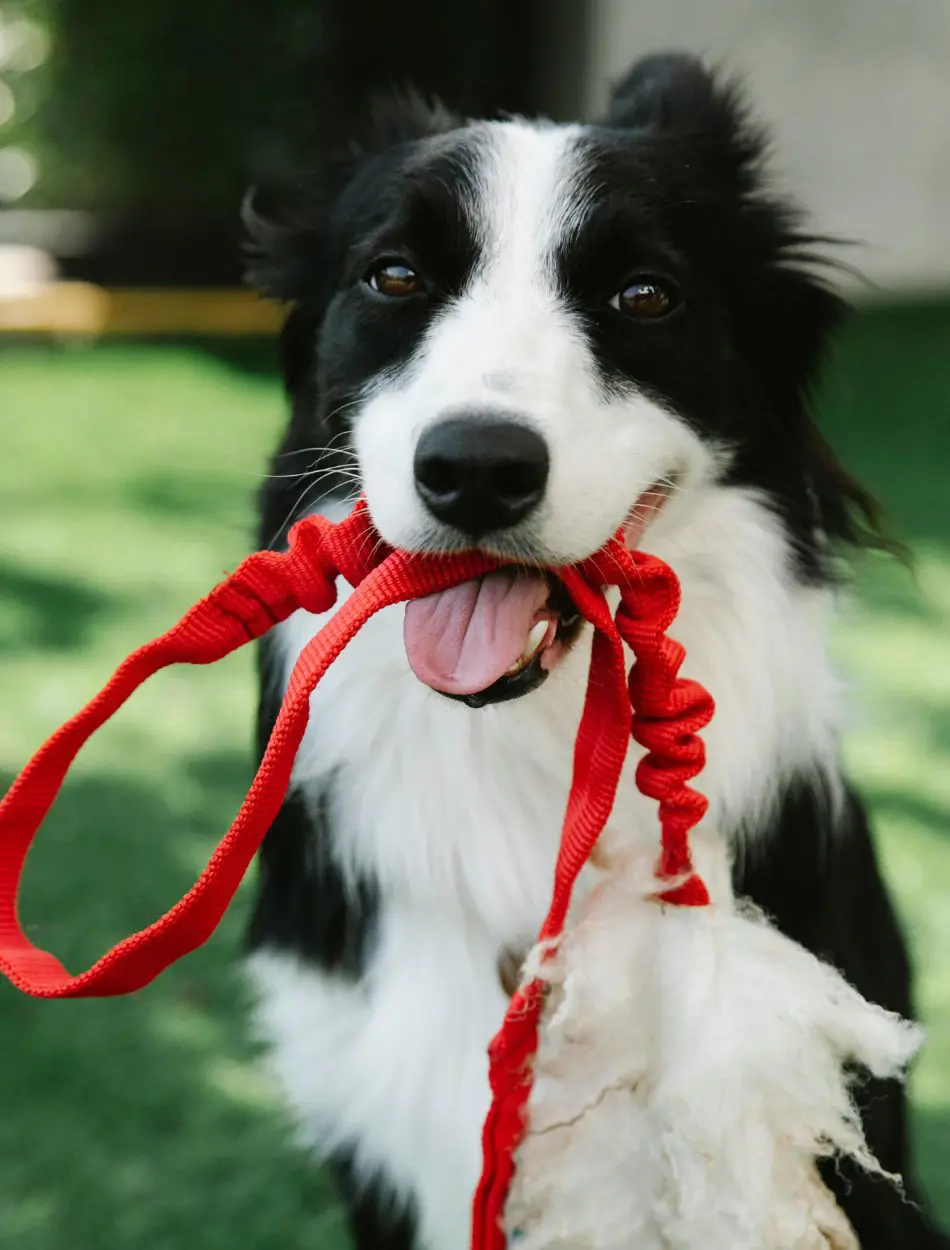
Dogs enjoy the excitement of discovering and rolling in a stinky spot because it breaks up the monotony of their everyday routine. In addition to entertaining them, it makes use of their keen sense of smell, which is significantly more developed than human senses. If the dog is not given enough exercise or interactive playtime or is left alone for extended periods, this behavior may be an easier way to keep them entertained.
Understanding this behavior as a response to boredom can help owners to take active steps to prevent it. Providing enough exercise, interactive toys, and engaging activities can help keep dogs mentally and physically recharged, reducing the lesser desirable forms of entertainment, such as rolling in poop or other stinky things.
Curiosity
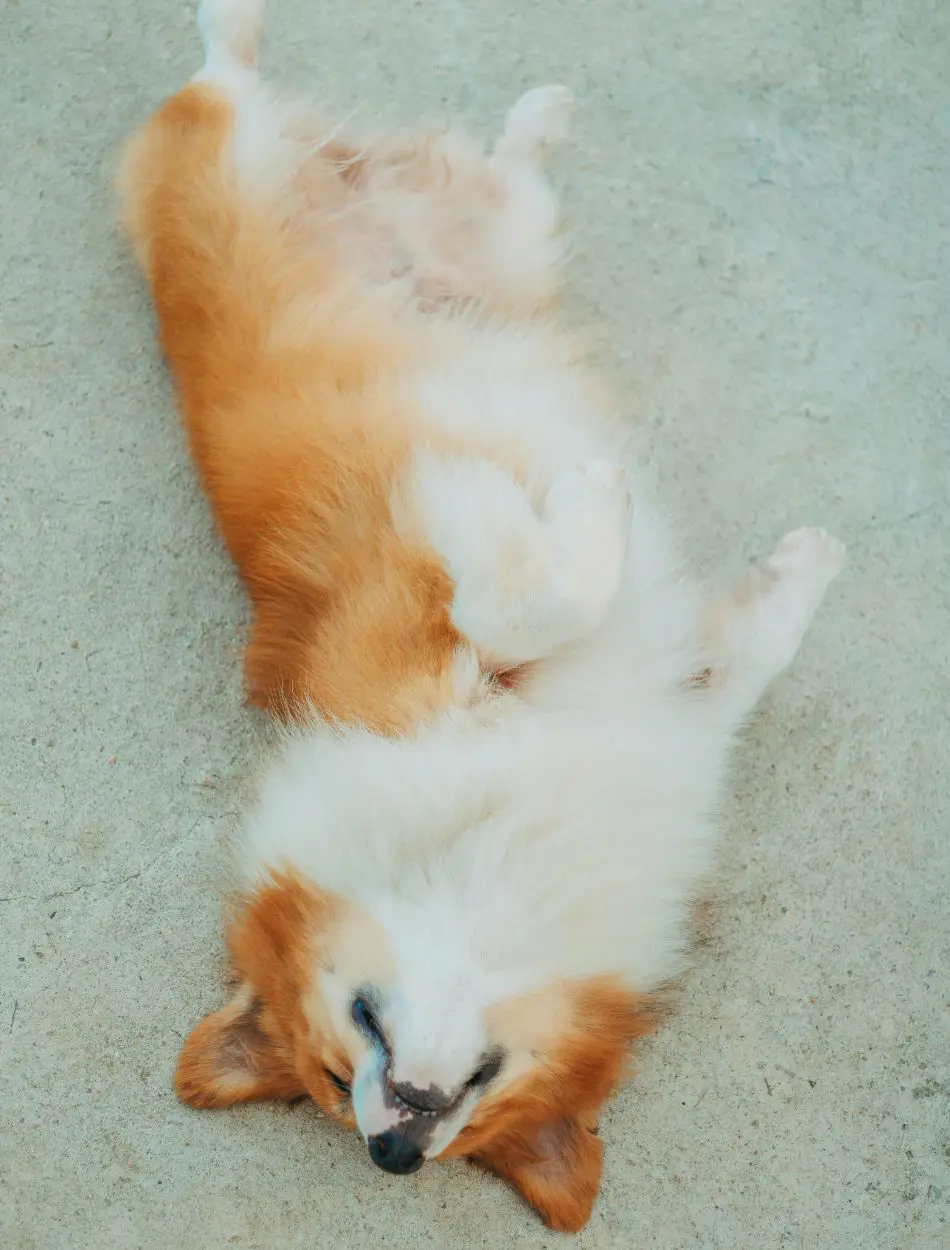
Dogs are naturally curious animals which makes them attracted to exploring their surroundings giving rise to a response to investigate any new stimulation of interest. This natural curiosity can easily lead to some behaviors that seem weird to us humans, such as rolling in poop and other smelly stuff.
When a dog encounters a strong smell, its developed sense of smell implores it to further investigate. By rolling in these odors, they will be fully engaged and disposing of themselves in the scent, thus satisfying their curiosity.
This interplay of discovering new smells and leaving their scent mark is a natural extension of their curiosity and an essential aspect of how dogs interact with their view of the world.
Territorial Marking
One major reason dogs could roll in poop or any other smelly substance is for territorial marking. The scent is a very important means of language in the wild, especially for canines. If some animal has a foul smell, the dog will rub in it mixing their scent with the smell to mark its territory.
For example, when a dog comes across a very stinky odor and rolls around in it, it spreads that smell wherever it goes, almost marketing itself to other dogs. This would ward off other animals that may otherwise enter the home space of the dog, as this strong combined smell acts as a signal. Hence, while wild instincts are always acted upon in a domestic setting, this behavior exists, only for reasons less towards survival and more aligned towards social rankings in a neighborhood or household.
Social Bonding
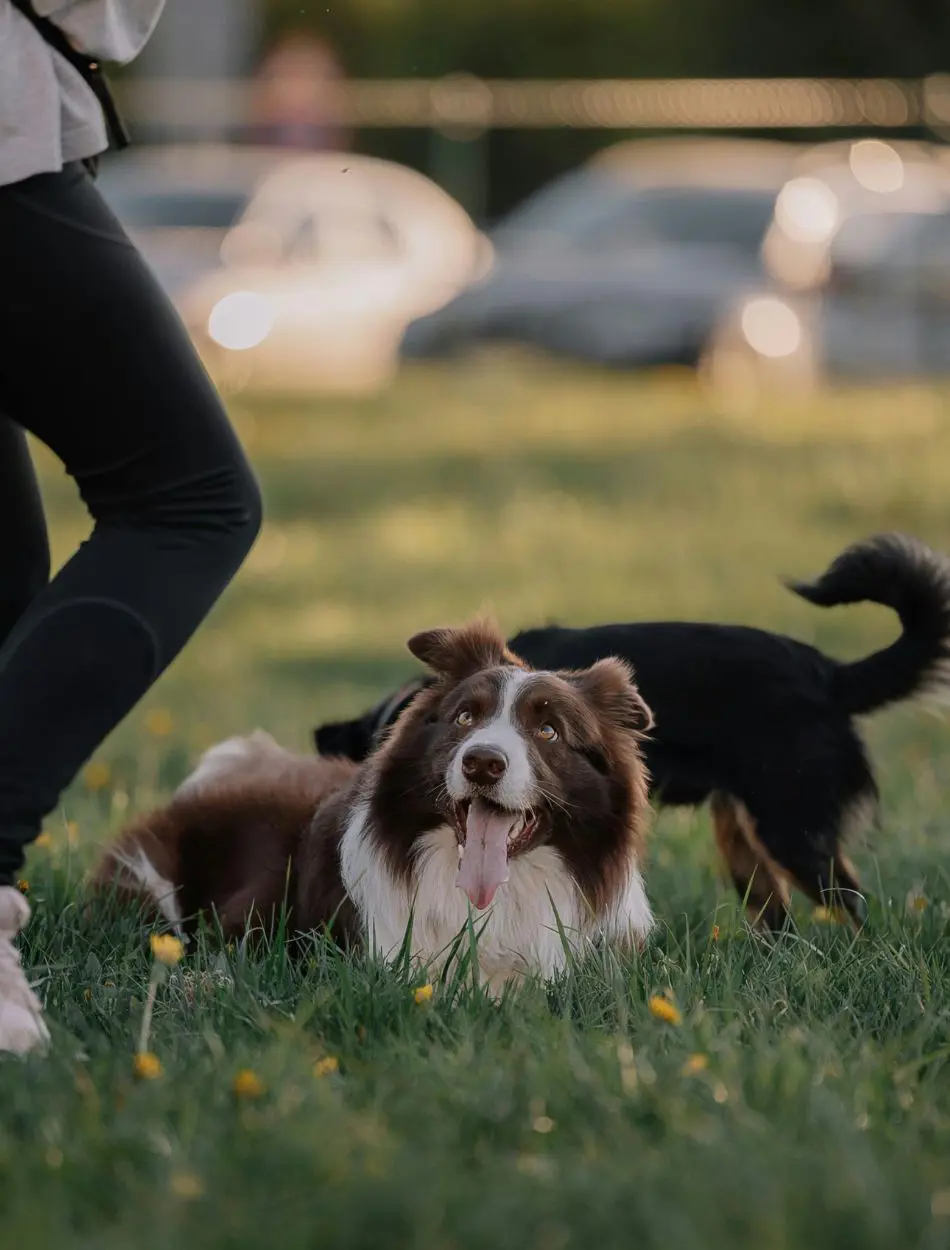
Social bonding may be a major reason dogs roll in poop and other stinky things. In wild pack animals, like wolves, scent is used as an extremely powerful way of bonding with each other.
When a wolf rolls in a strong smell and then rejoins the pack, that new scent conveys information about where the wolf has been and what it has encountered. This shared scent can then serve to reinforce the bonds socially and build a sense of unity within the pack. The same case applies to domestic dogs, whereby this instinctual behavior can still be seen.
Food Indication
Food Source Indication is a fascinating reason behind why dogs roll in poop and other stinky things. This behavior is thought to be rooted in their evolutionary history when their wild ancestors needed to communicate the location of food sources to their pack members. In the wild, rolling in the scent of decaying matter or feces could signal to other members of the pack that there is a food source nearby. This scent-marking behavior would allow the dog to bring the scent back to the pack, effectively guiding them to the location of the food.
Although domestic dogs are far removed from their wild counterparts, this instinctual behavior can still manifest. When a dog rolls in poop or other strong-smelling substances, they may be acting on this deep-seated instinct to mark and indicate the presence of something noteworthy, often related to food or other significant resources.
It also highlights how certain behaviors, while seemingly odd or unpleasant to us, have practical roots in the survival strategies of their ancestors.
Love Of Smell
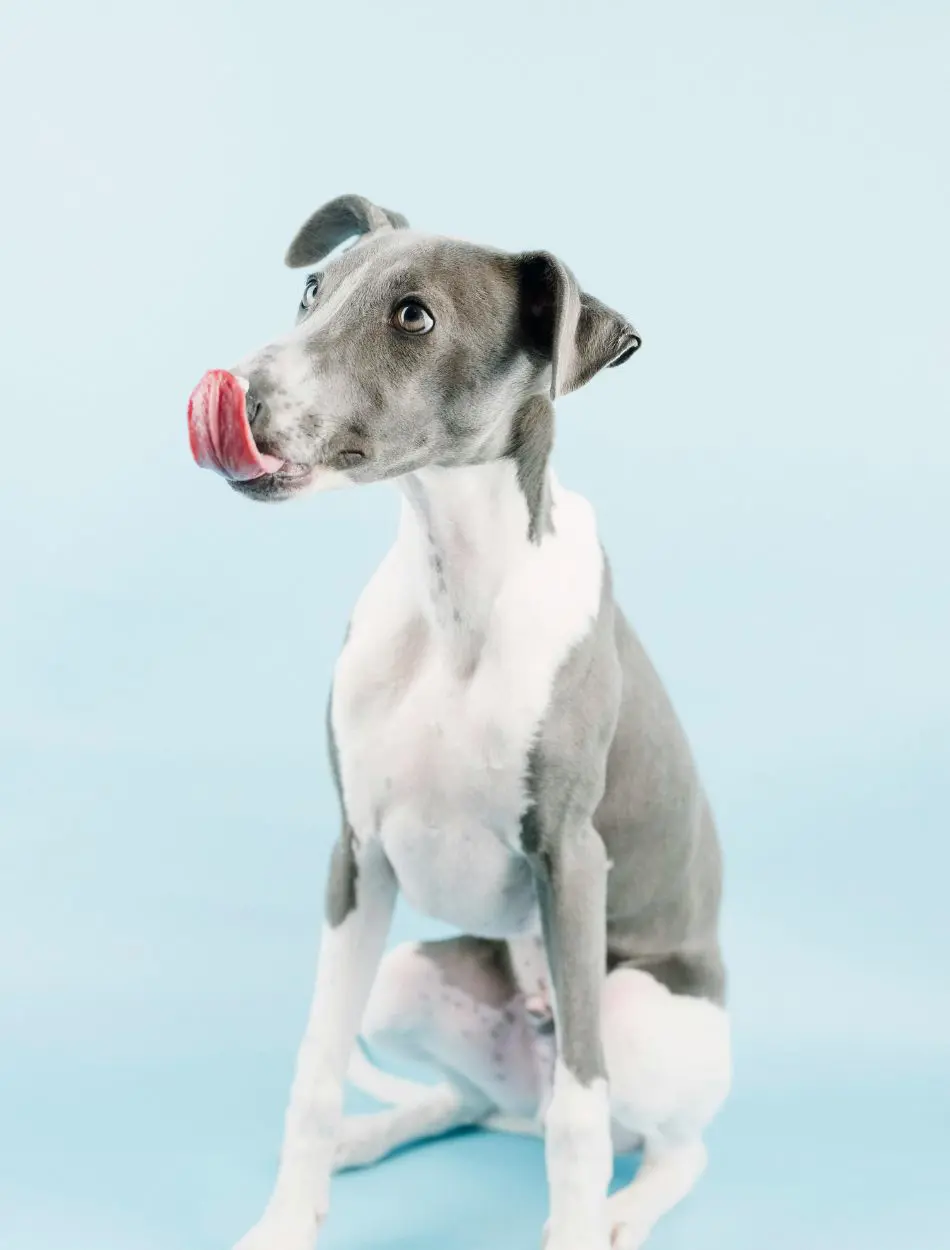
This one may be hard to accept but it appears that dogs really do like the smell of other animals' fecal matter. Think of it as when humans put on perfume—much like with some folks, the stronger the better. Dogs appear to be no different in this sense.
It's pretty interesting why dogs like the smell of poop and other strong odors. Dogs have a super sharp sense of smell, and they use it to get info about what's around them other animals, and even their own kind. When dogs roll in poop or other stuff, it's often tied to their instincts. This might be a way to cover up their own scent to stay safe from predators in the wild.
Hunting Instinct
Dogs roll in poop and other strong smells because of their hunting instinct. This comes from their history as hunters and animals that eat whatever they can find. In nature, dogs' wild relatives like wolves would often cover themselves in strong odors, including those from animals they might eat or dead things.
They did this to hide their own smell. By doing this, they could get close to animals they wanted to eat or find food without being noticed. This made it easier for them to catch their food or get a meal without risking their own life.
Although minimized dogs still do this natural thing, when they roll in stuff like poop or other stinky things it wakes up their inner hunter. The strong smell might remind them of food they'd hunt or dead animals, which makes dogs want to check it out. They might also try to cover up their own smell to sneak up on prey better or to hide from other animals that could hurt them or fight with them.
Covering Up Their Own Natural Scent
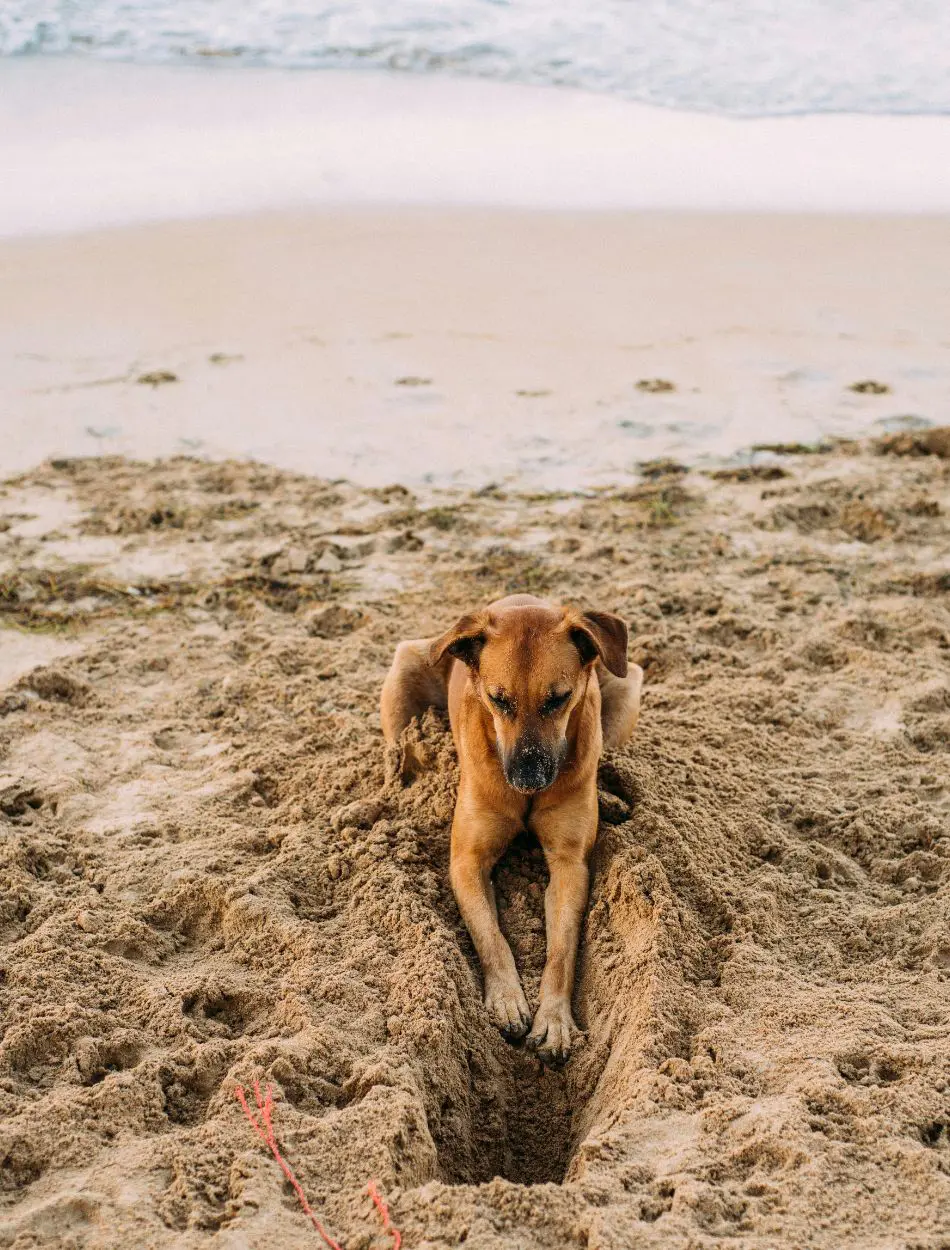
Dogs have a special trick to hide their smell that they do by putting chemical signals or by rolling on fecal matter and various stinky stuff around them. This helps them talk to other dogs, show where their space is, and say who they are.
By covering up their smell, dogs can be sneaky and move around without other dogs or animals that might eat them knowing they're there. This is a big part of how dogs understand their social world and the space around them.
Is It Normal?
For most dog owners, dogs rolling in dung and other foul-smelling stuff can only be unpleasant and off-putting. However unpleasant for humans, this behavior is actually pretty normal in truth. Instinctual and social behaviors brought about by their wild ancestors can be traced back to many different levels.
Dogs are sensitive to smell and have the tendency to play with different odors in their environment. Such behavior of rolling in feces is attributed to several underlying reasons that include camouflage, natural inclination to interact with different scents in their environment, and sensory enjoyment. This behavior, though controllable and reducible, is something one should know to expect from most dogs.
Controlling This Behavior
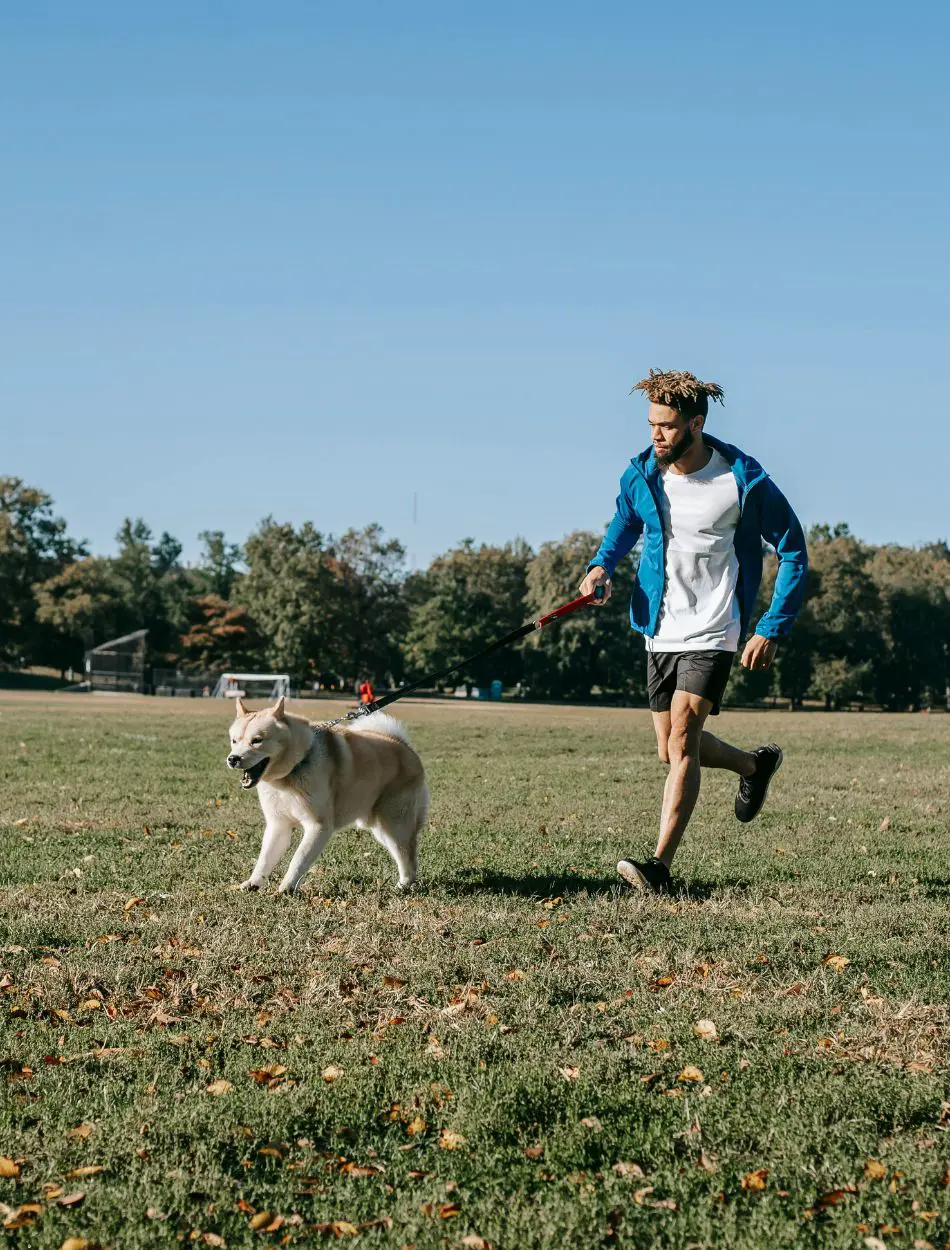
Stopping a dog from rolling in poop is never easy, but the truth is that with some level of tolerance, persistence, and constant training combined with management, you can be able to curtail this behavior. Here are several strategies that will help prevent your dog from rolling in feces.
- Train your dog to specific commands like leave it or stop. Use the treats as bait to distract your dog from the less desirable object and gradually increase the difficulty.
- Strengthen your dog's recall command so they will come to you when called, even when they are tempted by interesting smells.
- Keep a close eye on your dog during walks and outdoor playtime. Watch for signs that they are about to roll in something smelly.
- Use a leash to keep your dog close to you and prevent them from reaching feces or other stinky substances.
- Regularly clean your yard and any areas where your dog plays to minimize their exposure to feces.
- Keep your dog clean. Bathe him regularly especially after he has rolled in some stinking thing. Use dog-friendly shampoos to remove odors and keep their coat fresh.
- If your dog's behavior is persistent and difficult to manage it is better to consider seeking help from a professional dog trainer or a veterinary behaviorist.
While these strategies can help prevent your dog from rolling in feces, applying them on a regular basis can reduce the tendency. Remember that this is a natural behavior for too many dogs which means you should be very patient and persistent.
Top Lists
